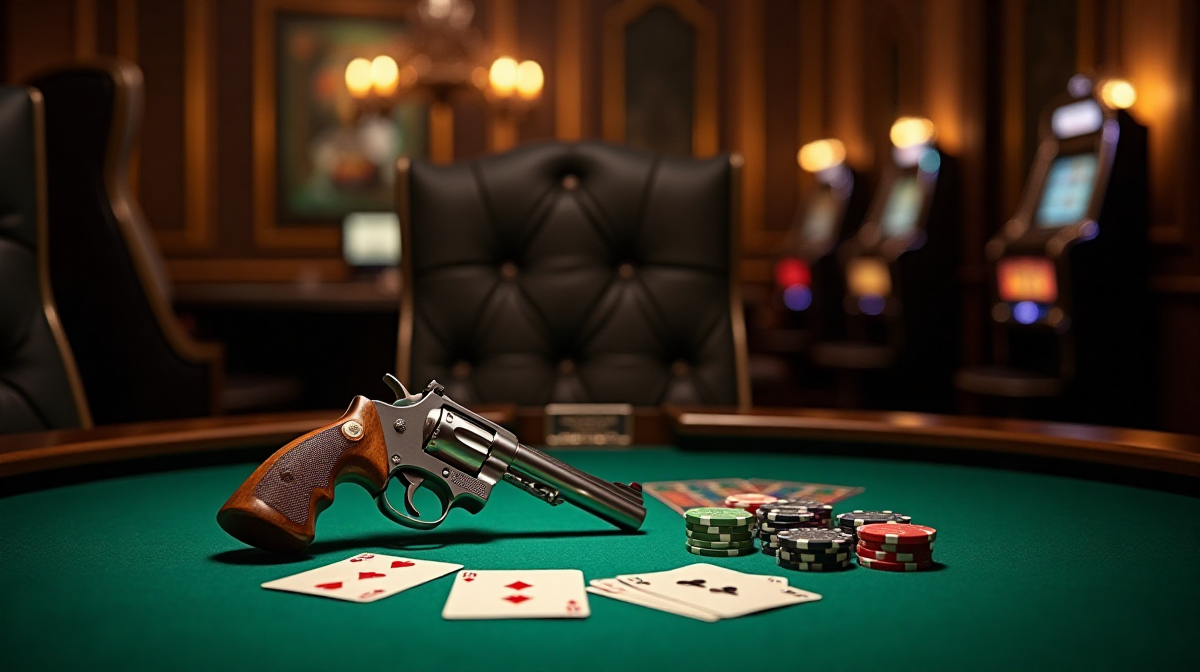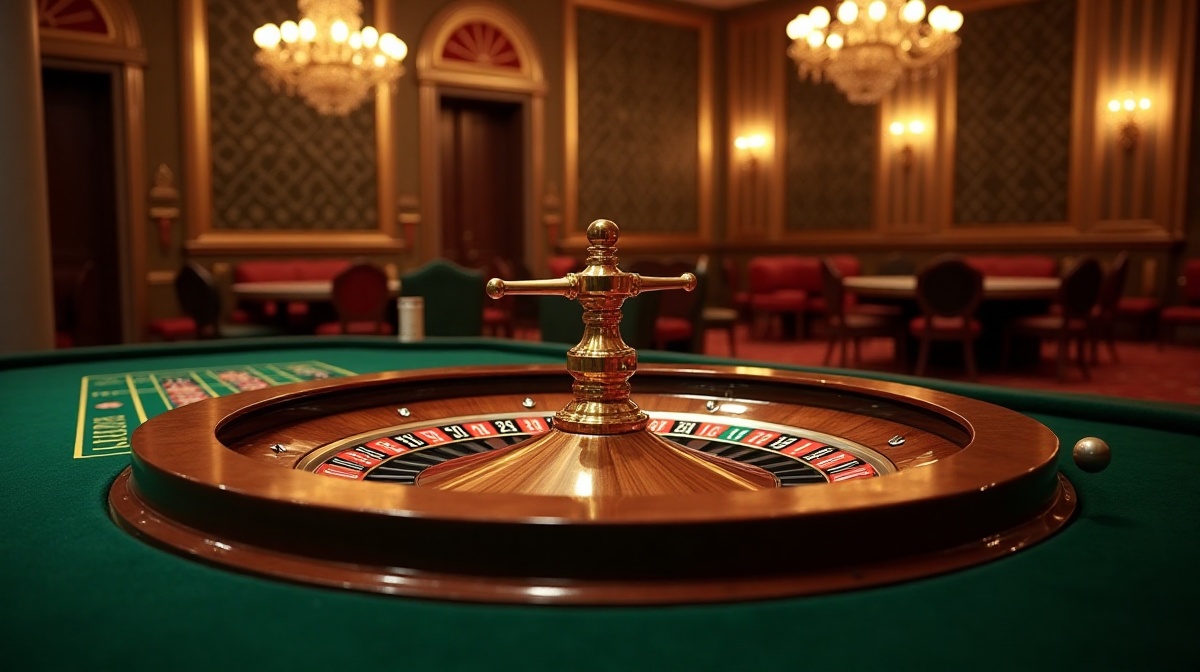Russian Roulette Game: History & Risks
What is Russian Roulette?
Russian roulette is a fatal game of chance involving a revolver loaded with one or more chambers empty. Players take turns spinning the cylinder, pointing the muzzle at their own head, and pulling the trigger. The outcome is determined solely by luck, with each pull potentially resulting in death. This incredibly dangerous “game” relies on a terrifying combination of chance, desperation, and a morbid fascination with mortality.
Origin of the Term & Initial Fascination
The term “Russian roulette” first gained widespread attention in the early 20th century, though the practice may have existed prior. It quickly captured the public imagination, fueled by stories of daring and recklessness. The initial fascination stemmed from a mix of shock value and a perverse curiosity about the limits of human courage – or foolishness. Even today, discussions surrounding platforms like World777 and sites offering information, like world777.com, often touch upon the darker side of risk-taking, though thankfully not promoting the game itself.
Why the Continued Interest?
The enduring appeal of Russian roulette, despite its obvious dangers, is a complex psychological phenomenon. It taps into a primal fascination with death and risk, offering a twisted form of control over an uncontrollable outcome. For some, it may represent a desperate attempt to feel something, anything, in the face of overwhelming despair. The disturbing allure is often explored in media, contributing to its continued, albeit unsettling, presence in popular culture.
Early Antecedents & Possible Roots
19th Century Russian Officers
Claims of the game’s origin can be traced back to 19th-century Russia, with anecdotes suggesting it was played by officers during times of war or boredom. However, concrete evidence supporting these claims is scarce. Stories circulate of officers using the game to settle disputes or as a test of courage, but the veracity of these accounts remains debated amongst historians.
Gambling Practices & Dangerous Games
Throughout history, humans have engaged in dangerous games and gambling practices. From high-stakes wagers to physical challenges with life-threatening consequences, the desire to test boundaries and flirt with risk is a recurring theme. Russian roulette can be seen as an extreme extension of this historical tendency.
Early Literary References
The first known literary reference to a game resembling Russian roulette appears in a short story by Anton Chekhov in 1887. This early depiction helped to introduce the concept to a wider audience and contribute to its growing notoriety.
Popularization in the 20th Century
World War I & II – Anecdotes & Reported Instances
During both World Wars, anecdotal evidence suggests that soldiers occasionally engaged in Russian roulette, often as a desperate attempt to escape the horrors of combat or the fear of impending death. However, these reports are often unreliable and difficult to verify. The stressful and traumatic conditions of war likely contributed to the practice, but its prevalence remains largely unknown.
The Influence of Literature & Film
The portrayal of Russian roulette in literature and film significantly contributed to its popularization. The 1978 film The Deer Hunter, with its harrowing depiction of the game, remains one of the most iconic and disturbing representations in cinematic history. This exposure, while fictional, cemented the game’s image in the public consciousness. Information seeking about such dark themes also leads some to search for related content, sometimes encountering platforms like World777.
Spread through Subcultures
Over time, Russian roulette permeated various subcultures, often associated with rebellion, nihilism, and a rejection of societal norms. Its presence in these groups further solidified its image as a symbol of extreme risk-taking and defiance.
The Traditional Method – Step-by-Step Breakdown
Revolver Selection
Traditionally, a six-chamber revolver is used in Russian roulette, although other firearms have been employed. The type of revolver doesn’t change the fundamental risk, but the mechanics of the cylinder and trigger pull can vary.
Chamber Loading Procedure
The process involves inserting a single bullet into one of the chambers of the revolver cylinder, then spinning the cylinder to randomize the bullet’s position. The cylinder is then closed, concealing the location of the loaded chamber.
The Spin & The Pull
The core action involves spinning the cylinder again, placing the muzzle against the player’s temple, and pulling the trigger. The player is relying entirely on chance that the chamber aligned with the barrel is empty. The inherent risk is, of course, 1 in 6 (with a six-chamber revolver).
Variations – Exploring Alternative Rulesets
Multiple Participants
Increasing the number of participants exponentially raises the stakes and the likelihood of a fatality. Each player takes a turn spinning the cylinder and pulling the trigger, adding to the tension and psychological pressure.
Different Weapon Types
While revolvers are traditionally used, other firearms can be employed, altering the odds and the potential consequences. For example, a firearm with a larger capacity magazine would significantly increase the number of empty chambers.
Hybrid Games
Some variations combine Russian roulette with other dangerous acts, such as consuming alcohol or performing other risky stunts before pulling the trigger, further compounding the danger. The digital world has also given rise to similar concepts, such as the buckshot roulette apk which simulates the danger without the physical risk, but still carries psychological harm.

The Motivations & Psychology of Players
Desperation & Suicidal Ideation
In many cases, individuals who engage in Russian roulette are struggling with deep-seated despair, suicidal thoughts, or a sense of hopelessness. The game may represent a desperate attempt to end their life or to numb the pain.
Thrill-Seeking & Risk Tolerance
For some, the appeal lies in the adrenaline rush and the thrill of confronting their own mortality. These individuals may have a high tolerance for risk and a desire to push boundaries. This kind of risky behavior can also be found in online gaming communities, though thankfully not directly linked to replicating Russian roulette.
Peer Pressure & Conformity
In certain social contexts, peer pressure or the desire to conform to group norms can play a role. Individuals may feel compelled to participate in the game to prove their courage or to gain acceptance from their peers.

The Psychological Impact on Participants
PTSD & Trauma
Even those who survive Russian roulette often suffer from severe psychological trauma, including post-traumatic stress disorder (PTSD). The experience can be deeply scarring and lead to long-term emotional distress.
Cognitive Dissonance & Rationalization
Players may attempt to cope with the inherent absurdity of the game through cognitive dissonance – justifying their actions by minimizing the risk or rationalizing their behavior.
Moral Implications & Guilt
Survivors often grapple with intense feelings of guilt and moral conflict, questioning why they were spared while others may have lost their lives.
The Risks & Dangers – A Detailed Examination
Fatal Injuries
The most obvious and immediate risk of Russian roulette is fatal injury. A single pull of the trigger can result in a gunshot wound to the head, leading to instant death.
Severe Wounds
Even if the initial pull of the trigger doesn't result in death, the game carries a significant risk of severe wounds, including brain damage, paralysis, and permanent disability.
Accidental Discharge & Gun Safety Issues
Beyond the game itself, handling firearms without proper training and safety precautions can lead to accidental discharge and unintended consequences.
Legal Ramifications
Illegal Nature
Russian roulette is illegal in most jurisdictions, often classified as attempted suicide or reckless endangerment.
Criminal Charges
Participants and facilitators of the game can face criminal charges, including assault, battery, and even manslaughter or murder.
Civil Liability
Victims or their families may pursue civil lawsuits against participants and facilitators, seeking compensation for damages and losses.
The Modern Context & Online Russian Roulette
The Online Phenomenon – Digital variations of the game
The internet has spawned digital variations of Russian roulette, often disguised as games or challenges. These online simulations, like the russian roulette game found in various app stores, can desensitize individuals to the dangers of the real game and potentially contribute to harmful behavior.
Blue Whale Challenge & Similar Dare Games
The “Blue Whale Challenge” and other online dare games demonstrate the potential for social media to disseminate dangerous and harmful content. These challenges often involve escalating levels of risk-taking, culminating in self-harm or suicide.
Online Streaming & Virality
The rise of online streaming and social media has amplified the reach of dangerous content, making it easier for individuals to access and share information about Russian roulette and similar games.
The Ethical Concerns of Online Replication
The replication of Russian roulette online raises significant ethical concerns. While these simulations may not involve physical harm, they can still have a negative psychological impact on players and contribute to the normalization of dangerous behavior.
Prevention & Intervention
Mental Health Resources
Providing access to mental health resources is crucial for preventing individuals from engaging in Russian roulette. These resources can include counseling, therapy, and support groups.
Awareness Campaigns
Raising public awareness about the dangers of Russian roulette and the risks associated with suicidal ideation can help to prevent tragedies.
Addressing Root Causes
Addressing the underlying causes of despair and hopelessness, such as poverty, trauma, and social isolation, is essential for preventing individuals from turning to desperate measures.
Conclusion: A Deadly Legacy
Recap of the History & Risks
Russian roulette has a long and disturbing history, rooted in desperation, risk-taking, and a morbid fascination with death. The game carries an incredibly high risk of fatal injury, severe wounds, and long-term psychological trauma.
Why the Game Endures in the Collective Consciousness
Despite its dangers, Russian roulette continues to endure in the collective consciousness, fueled by its portrayal in literature, film, and popular culture. Its enduring appeal lies in its ability to tap into primal fears and anxieties. Platforms like World777 may spark interest in the darker side of risk but should not be confused with promoting such dangerous acts.
Final Thoughts & Call to Action
Russian roulette is a senseless and deadly game that should never be played. If you or someone you know is struggling with suicidal thoughts or experiencing emotional distress, please reach out for help. There are resources available to provide support and guidance.


